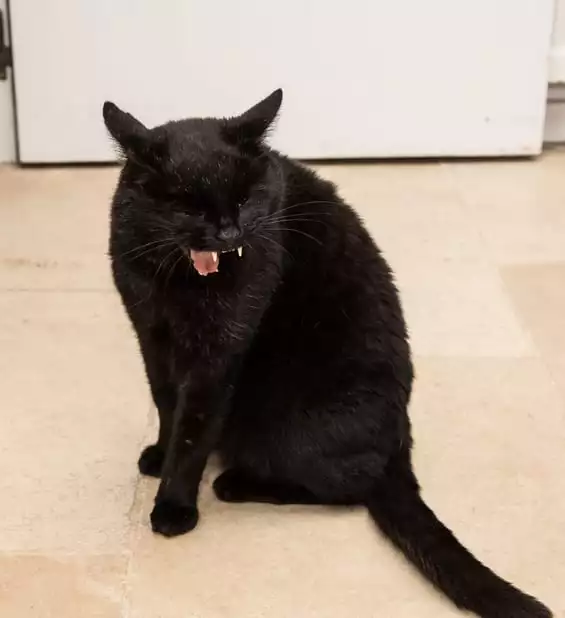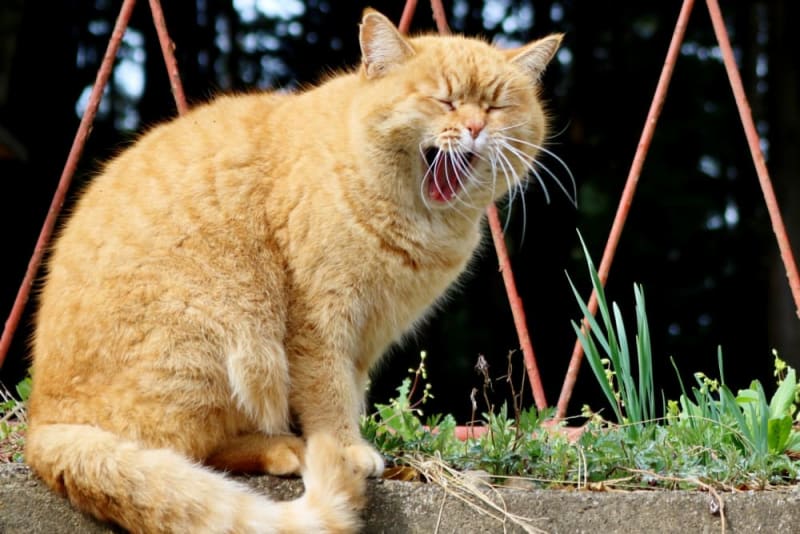If your cat is gagging, it could be due to hairballs, foreign objects, or respiratory issues. Gagging in cats is a common symptom that should not be ignored, as it could indicate a serious medical condition.
It is important to pay attention to the frequency and severity of the gagging, as well as any accompanying symptoms, to determine the underlying cause. We will explore the possible reasons why your cat is gagging and discuss when you should seek veterinary care.
Understanding the causes behind your cat’s gagging can help you provide the necessary care and ensure their well-being. Keep reading to learn more about this common cat behavior.
Understanding The Causes Of Cat Gagging
Cat gagging can be a worrisome sight for any pet owner. It is important to understand the various causes behind this behavior to ensure the best care for your furry friend.
Hairballs As A Common Cause
One of the most common causes of cat gagging is the presence of hairballs. Cats groom themselves by licking their fur, and this can lead to the ingestion of loose hairs. These hairs can accumulate in their stomach and form hairballs, leading to gagging as they try to expel them.
Respiratory Infections And Allergies
Gagging can also be a symptom of respiratory infections or allergies. Respiratory infections can cause mucus build-up, leading to coughing and gagging. Allergies, on the other hand, can cause irritation in the throat, resulting in the gagging reflex.
Foreign Objects In The Throat
Lastly, foreign objects lodged in the throat can cause cat gagging. Cats are curious creatures and may explore their surroundings by chewing or swallowing objects that they shouldn’t. These objects can cause irritation or blockage in the throat, triggering the gagging response.
Identifying Symptoms Of Cat Gagging
Gagging in cats can be a cause for concern for pet owners. One common symptom is frequent coughing and hacking sounds. If you notice your cat making these noises, it could be a sign of an underlying issue. Another symptom to look out for is excessive drooling and swallowing. If your cat is drooling more than usual and seems to be swallowing excessively, it may indicate a problem. Vomiting or regurgitation is another red flag to watch for. If your cat is bringing up food or fluid regularly, it could indicate a gastrointestinal problem. It is important to pay attention to these symptoms and consult with your veterinarian if you notice any concerning behaviors.
Steps To Prevent And Manage Cat Gagging
One common reason for cat gagging is the formation of hairballs. Regular grooming can help reduce the occurrence of hairballs by preventing excessive shedding and allowing for the removal of loose hair. Brushing your cat’s fur regularly can help to remove loose hair and reduce the amount of hair ingested during self-grooming. Additionally, keeping the environment clean and dust-free can also help prevent cat gagging. Dust and allergens in the environment can irritate a cat’s respiratory system and lead to coughing or gagging. To minimize this, it is important to regularly clean and vacuum your home, particularly areas where your cat spends a lot of time. Furthermore, avoiding the use of toxic household products such as cleaners and air fresheners can help maintain a healthier environment for your cat and prevent respiratory issues. Choosing natural, pet-safe alternatives can help reduce the risk of cat gagging and promote a safer living space overall.

Credit: orlandovets.com
Conclusion
To sum up, if you’ve been wondering why your cat has been gagging, it might be due to a variety of reasons. From hairballs to respiratory issues or even foreign objects, it’s important to monitor your furry friend closely for any signs of distress.
By understanding the causes and taking preventive measures, such as regular grooming and keeping the environment safe, you can ensure your cat stays healthy and happy. So, if you notice persistent or severe gagging, it’s always best to consult your veterinarian for proper diagnosis and treatment.
Remember, a little care goes a long way in keeping your feline friend in great shape.


